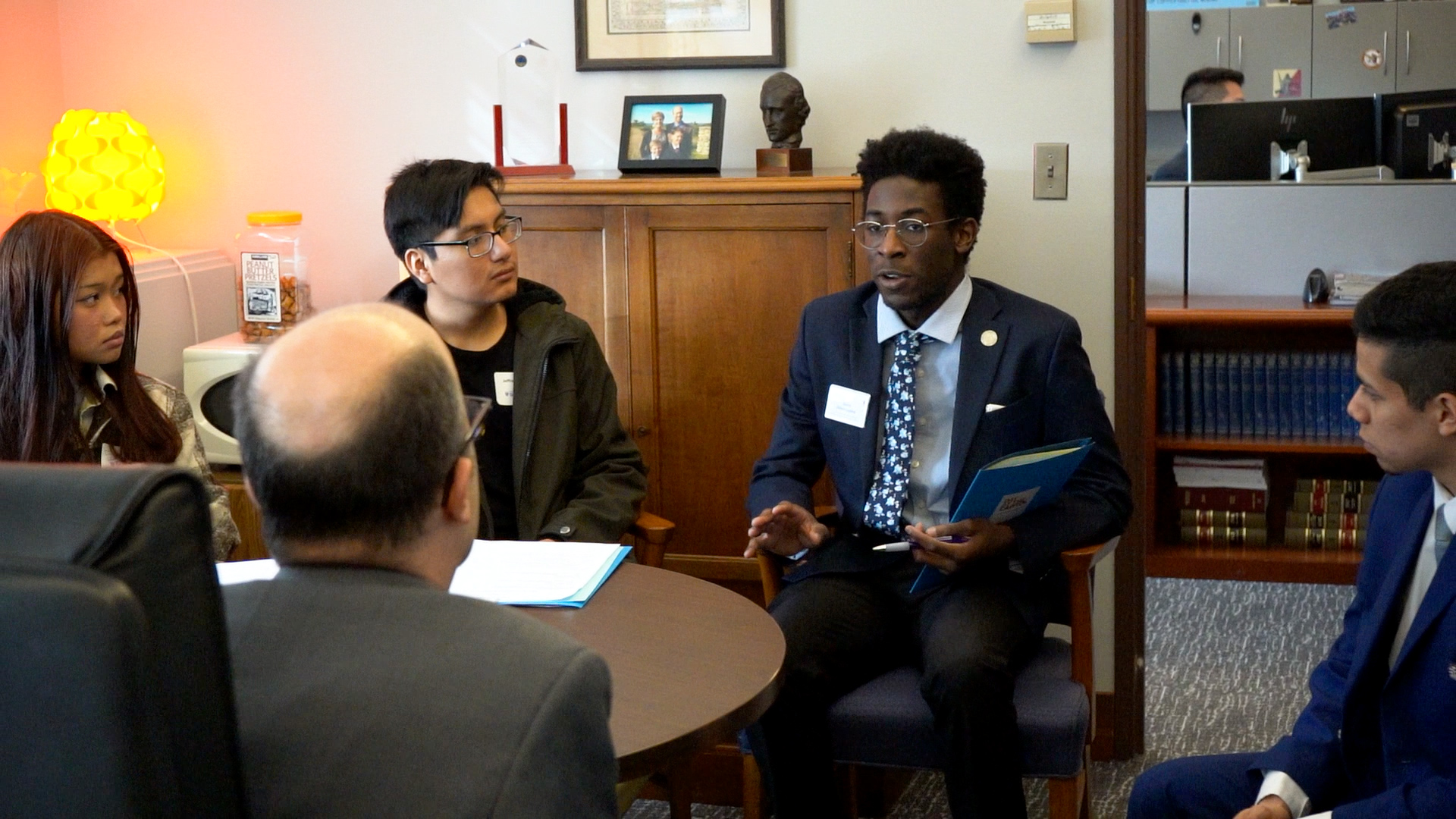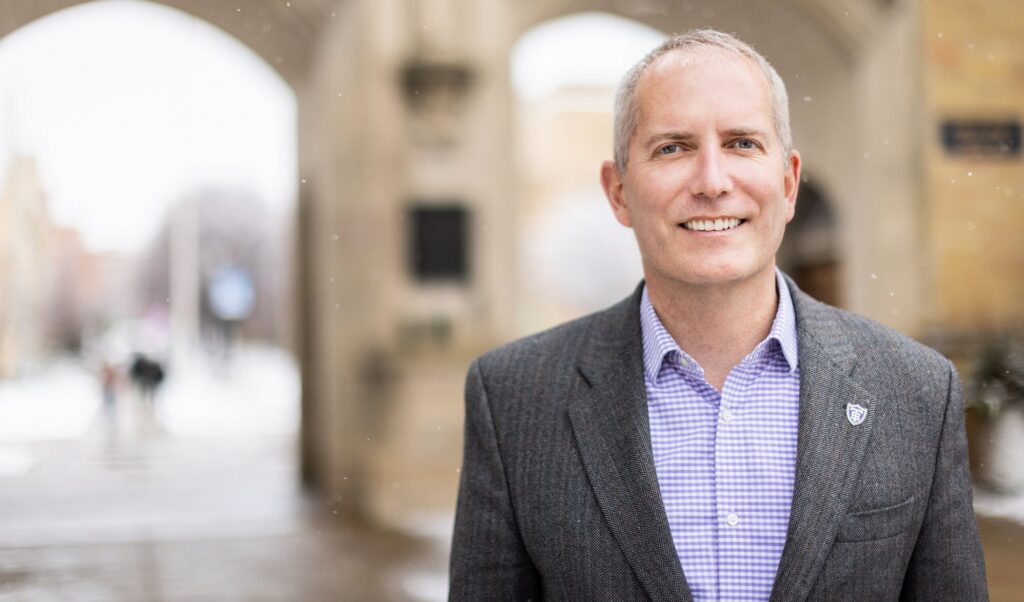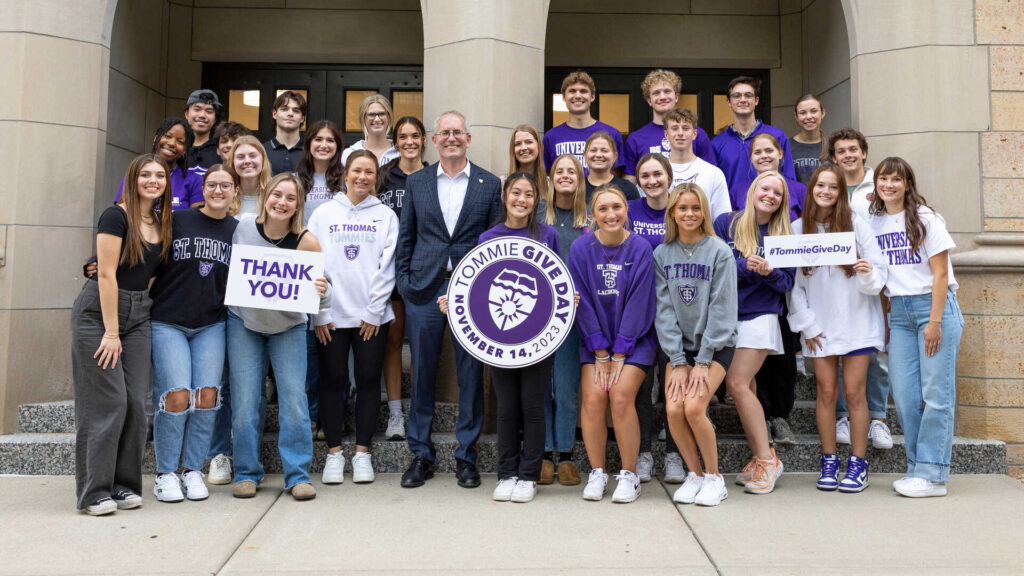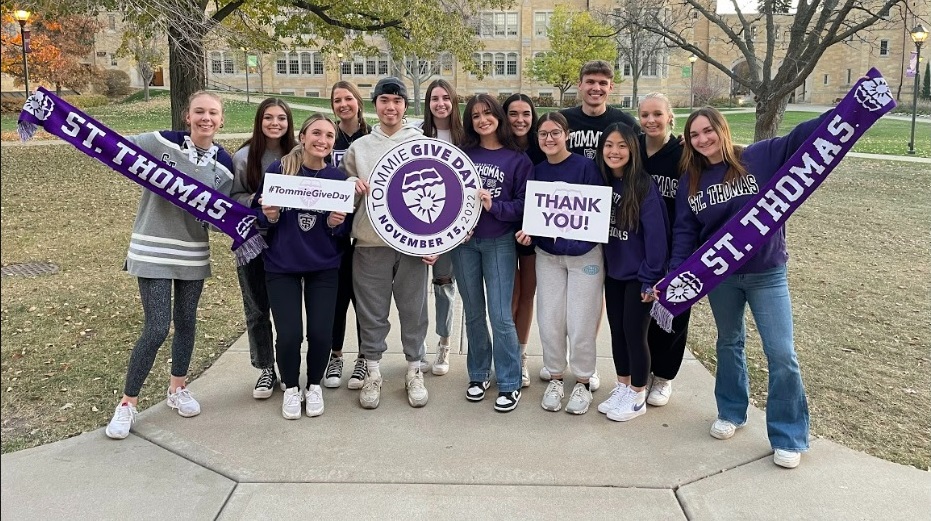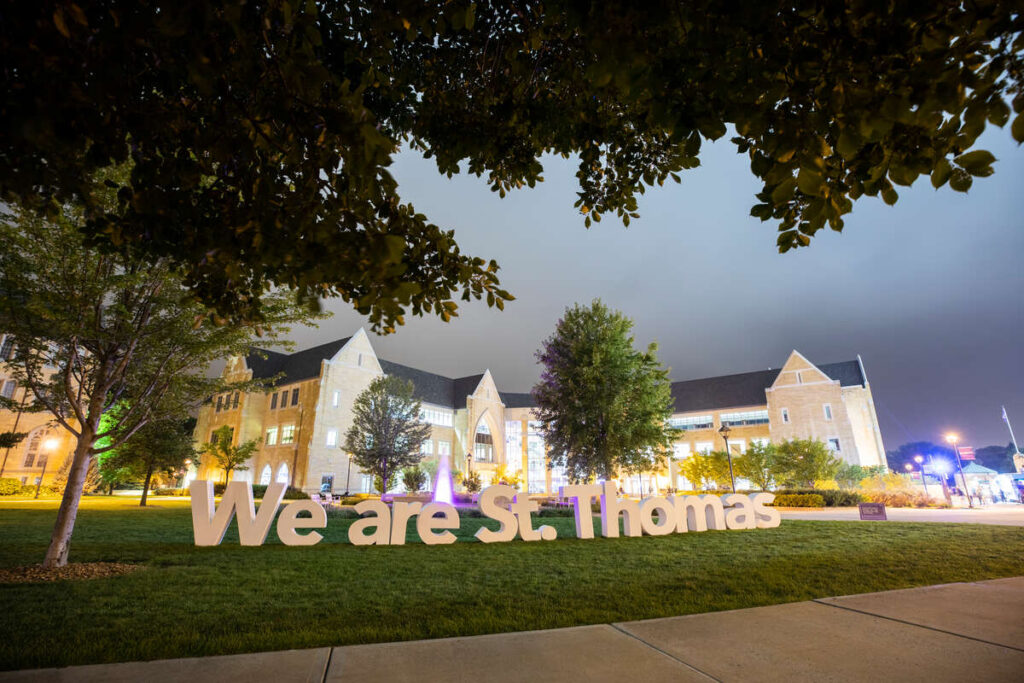Dare Akinmusire ’24 is just weeks from walking across the graduation stage at the University of St. Thomas. But before officially throwing his cap in the air, the senior is delivering a personal message to the Minnesota Legislature: their vote can make it possible for more students like him to succeed in college.
A Minnesota State Grant recipient, Akinmusire is one of several St. Thomas students advocating for an expansion of the State Grant program, which helps low- and middle-income students pay for their degrees. The group wants legislators to know that their collegiate journeys would have looked very different without financial aid from the state.
“The support has lessened the burden on my family financially, but it’s done so much more than that,” Akinmusire said. “Instead of spending time at a part-time job, I’ve been able to participate more fully in my own education, learning and connecting alongside my peers. I want to bridge that gap for others.”
In 2023, state lawmakers made a major investment in college affordability by creating the North Star Promise program, but students who attend private nonprofit colleges are not eligible. The program covers tuition costs – at public colleges – for students from families with household incomes up to $80,000.
Akinmusire and about a dozen fellow Tommies visited the Minnesota Capitol on March 12 to advocate for a new program that aims to level the playing field. The Promise Equalization Scholarship would invest an additional $13.9 million into the State Grant program, increasing awards for students who wish to attend a private institution.
At the University of St. Thomas, 1,589 State Grant recipients were on campus last academic year – that’s 25% of all undergraduates. If the Promise Equalization Scholarship were to be passed and signed into law, each student would receive an average boost of $1,000 annually.
“Often I think people have misconceptions about the financial means of students going to nonprofit private colleges,” Akinmusire said. “Things are changing, and we need to have these conversations about how to support a diverse cross section of students who often face economic challenges but still deserve to make the best college decision for themselves.”
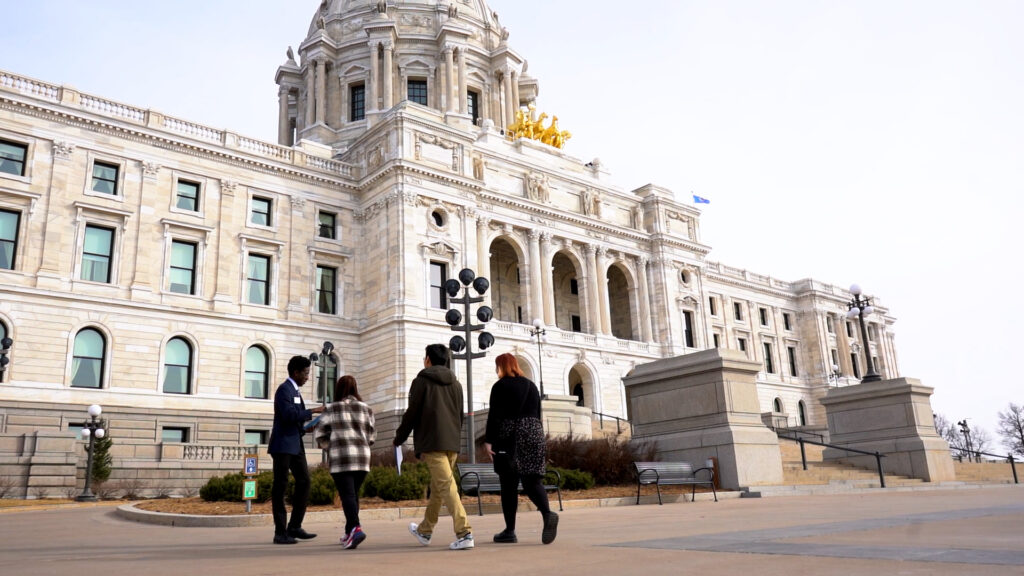
Tommies took that conversation directly to lawmakers all around the Capitol complex, meeting one-on-one with representatives in the Senate and House.
Ryan Eatchel ’26 wanted to put a face on the issue for policymakers. The environmental studies major has two siblings who are also currently pursuing undergraduate degrees. Without financial aid, her family wouldn’t have been able to support her choice to attend St. Thomas.
“You should be able to pursue the school that’s right for you – whether that’s private or public – without worrying too much about your socioeconomic background,” Eatchel said. “Scholarships played a big role in my journey, and I want that support to be there for future students who are interested in programs at private institutions.”
For decades, the state’s financial aid policy addressed the financial needs of low- and middle-income students at both public and nonprofit institutions solely through the State Grant program. But with the creation of the North Star Promise program, that financial equity is no longer applied equally.
The Minnesota Private College Council – of which St. Thomas is a member – believes lawmakers can restore financial aid parity for students at nonprofit colleges through the Promise Equalization Scholarship.
“We want all of our students to be treated equally, especially since they will be significant contributors to our future and the Minnesota workforce of the future,” University of St. Thomas Director of Neighborhood and Community Relations Jerome Benner said. “Students at St. Thomas deserve to know that their state legislators are invested in providing the resources that will allow them to succeed.”
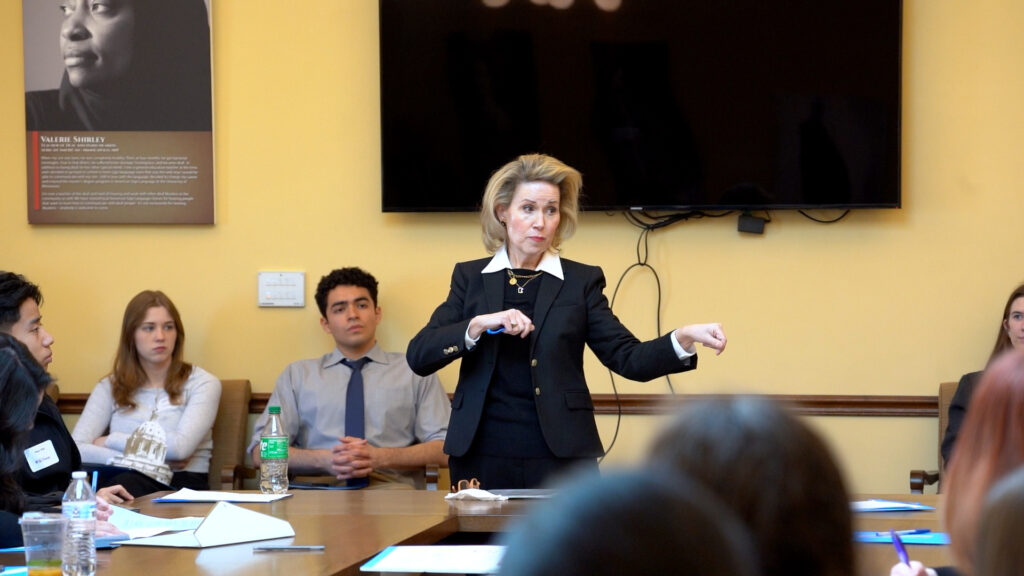
Nonprofit private colleges award about one-third of the bachelor’s degrees earned in the state, and the majority of those graduates (68%) stay in the state to pursue their careers.
So far, the Promise Equalization Scholarship has received a variety of support from lawmakers on both sides of the political aisle. Current St. Thomas students hope policymakers will move quickly to create better opportunities for all.
“I hope that by meeting with these lawmakers, they’ll be better aware of who could be impacted by this bill,” Eatchel said. “Spending a little time advocating for future Tommies could be the little bit that creates greater access to higher education.”
